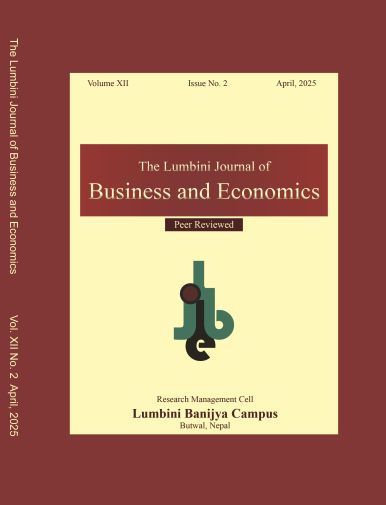Graduate Capital and Perceived Employability in Academic Institution of Butwal Sub-metropolitan City
DOI:
https://doi.org/10.3126/ljbe.v12i2.77424Keywords:
Employability, psychological capital, social capital, human capital, development, structural equation modelingAbstract
Purpose: The study seeks to examine the connection between cultural capital, human capital, psychological capital, social capital, and the perceived employability of management graduates.
Methods: The study employed a purposive sampling technique to gather data from 253 graduate students in Butwal, a sub-metropolitan city. An adapted questionnaire incorporating a seven-point Likert scale was used for data collection. Additionally, a descriptive and causal-comparative research design was applied. Various statistical methods, including Mean, Standard Deviation, Correlation, and Regression, were utilized for data analysis.
Results: The results indicated that psychological capital, social capital, human capital, and cultural capital are the major factors for Perceived employability. While there are positive and significant impacts of independent variables on dependent variables.
Conclusion: The study underscores the significance of not only traditional academic qualifications but also the development of broader skills and competencies acquired through education and experience. Social Capital and Human capital show high performance suggesting effectiveness.




